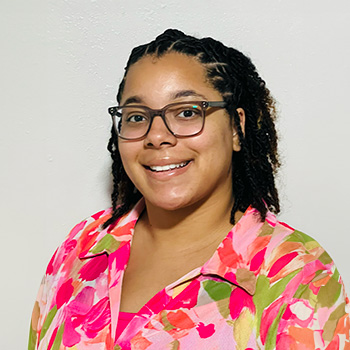Do you long for deeper, more meaningful connections in your life but don’t know how to get there? Did you know you can work on your relationships for yourself through individual relationship counseling?
You know lots of people. But you find yourself longing for closer relationships. The kind of relationship where you can talk about everything and truly be yourself. Where you can go from deep conversations to just laughing together about the silliest things.
So, what’s holding you back?
Maybe it’s hard for you to tell people what you want. Even simple things like where you want to eat or what time you want to meet up. Therefore, you end up doing whatever other people want, more times than you’d like to admit.
Or perhaps you pull away the moment a relationship starts to feel too serious. Or you’re still looking for that one person who ticks all the right boxes? But, you’re getting tired of feeling alone.
Relationships are key to a happy and meaningful life and therapy can help you work through your relationship issues and nurture happiness from within.
At New Connections, our Baltimore-based therapists take a relational approach to therapy. We believe that relationships are important for your mental health and overall well-being. Together, we will work on building trust and safety in your relationships. This creates the necessary foundation for working on your relationship issues through individual therapy.
Common Relationship Issues Therapy Can Help With
Here are some examples of relationship issues we can work together to overcome in therapy:
- Trouble telling others “no”
- Lack of close friends
- Short or non-existent romantic relationships
- Trouble telling other people what you need
- Having the desire to be a “people pleaser” and make others happy all the time
- Issues setting healthy boundaries in your relationships
- Grief over a breakup or friendship ending
- Not being able to open up or be vulnerable with others
- Intimacy issues
- Relationship insecurity
Relationships and Social Connections Are an Important Part of Life
Brené Brown says: “We are wired to connect.”
Every relationship is important, whether it’s between parent and child, spouses, co-workers, or neighbors. When we feel disconnected, it affects how we see ourselves and how we interact with those around us.
And when our relationships are in distress, generally our world falls apart. But, even the strongest relationships can go through periods of disconnection. That doesn’t mean you’re failing — it simply means you could use some extra support.

The Impact of Trauma on Relationships
One of the biggest impacts interpersonal trauma has on your life is the damage it does to your ability to trust others. Examples of interpersonal trauma include a sexual assault, an abusive partner, or childhood neglect.
When you get hurt by someone you know and trust, it can leave you doubting your own instincts.
Often, you feel unsure about who you can trust. After a trauma, some people start interacting in a more guarded way with others. This of course gets in the way of others getting to know you well and developing deeper connections. Therefore, a part of trauma treatment is learning to trust again. Perhaps, first with your therapist. Then, you may work on your ability to trust other people in your life outside therapy.
Shame also makes it hard to connect to others. Silence feeds shame. Therapy is a safe place to break the silence and begin approaching shame and its impact on relationships.
Our Approach to Individual Relationship Counseling in Baltimore, MD
Our approach to relationship issues therapy is uniquely tailored to meet your needs. To give you a sense of how we work, we will highlight three concepts we often utilize in our therapeutic approach:
Relationship Attachment Styles and Attachment Therapy
Since connection is this driving force in our lives, it’s no surprise that our childhood experiences — especially the bonds we form with our parents or caregivers — play such a significant role in our future relationships.
Those first connections make our entire world, shaping how we understand others and ultimately ourselves. This is why our relationship attachment style is deeply rooted in our early childhood and has a ripple effect on how we develop and maintain relationships as adults.
Attachment therapy is rooted in the belief that human connection and relationships are fundamental to our growth and development.
There are four basic relationship attachment styles:
- Secure attachment: A healthy and balanced form of connection.
- Anxious attachment: Also known as preoccupied or anxious-ambivalent attachment.
- Avoidant attachment: Often referred to as dismissive-avoidant attachment.
- Disorganized attachment: Also called fearful-avoidant, blending elements of both anxious and avoidant attachment.
For example, children who experienced a lack of emotional support — even when their physical needs were met — may develop a strong sense of independence, learning not to rely on others to meet their emotional needs. In this way, our childhood connections, or the absence of them, leave lasting imprints that stay with us throughout our lives.
Through attachment style therapy, which is a form of talk therapy, we’ll work together to overcome the negative effects of your childhood experiences, and cultivate healthier relationships with those around you and yourself!

Hi! I’m Janel, the Care Coordinator for New Connections Counseling Center.
The Power of Vulnerability
The power of vulnerability is a concept widely expanded by Dr. Brené Brown. She defines vulnerability as “uncertainty, risk, and emotional exposure.” According to Brown, perfectionism is a classic defense mechanism — a way to protect yourself from getting hurt. She highlights that, what perfectionism actually does, is prevent us from being seen.
Brown’s insights are particularly valuable in working with relationships. They help us understand how things such as shame may get in the way of human connection. She defines connection as “the energy that exists between people when they feel seen, heard, and valued; when they can give and receive, without judgment; and when they derive sustenance and strength from the relationship”.
Self-Compassion and Healing Your Relationship Patterns
Dr. Kristin Neff, one of the world’s leading experts on self-compassion, describes it as giving ourselves the same kindness and care we’d give to a good friend.
As Neff explains, “Self-compassion involves acting the same towards yourself when you are having a difficult time, fail, or notice something you don’t like about yourself. Instead of just ignoring your pain with a “stiff upper lip” mentality, you stop to tell yourself “This is really difficult right now,” “How can I comfort and care for myself in this moment?”.
Cultivating self-compassion leaves you open to real connections and relationships. When you are harsh and judgmental with yourself, you may feel the need to hide. This can lead to avoiding or distancing ourselves from others or putting up a front when we feel uncomfortable.
How Individual Relationship Counseling Can Help You
Relationship therapy helps you connect with yourself and what you want from your relationships. Our Baltimore-based therapists will help you look at your relationship issues and identify the barriers getting in your way. Then, you will learn tools to use in your life and relationships. This will lay the foundation for positive change.
At New Connections Counseling Center, we provide a compassionate space for you to talk about your relationship struggles. We will help you identify your emotional needs and desires, learn how to communicate assertively and remain calm in difficult times. We are here to support you through every step of this journey.
Ultimately, we want you to have the tools to communicate with others so you can have the healthy relationships you have been longing for.
Begin Individual Relationship Counseling in Baltimore, MD

If you’re ready to improve your relationships and develop healthy communication strategies, we’re here to support you. For your convenience, you can choose to attend therapy sessions online from anywhere in Maryland.
To get started with relationship counseling in Baltimore, MD, simply follow these steps:
- Reach out to us using our appointment request form.
- Learn more about our Baltimore therapists who specialize in relationship issues, attachment therapy, and more!
- Reconnect with yourself and build healthier, more meaningful relationships.
Other Therapy Services at New Connections Counseling
In addition to individual relationship counseling, our Baltimore, MD counselors offer a variety of mental health therapy services. Ultimately, our goal is not only to help you feel better but help you live better.
Therefore, our services include therapy for depression, anxiety treatment, counseling for grief and loss, counseling for life transitions, therapy for survivors of sexual assault, therapy for women, and trauma therapy. Reach out today to learn more about the many ways we can support you on your journey toward better emotional health.
Blog Posts for Individual Relationship Counseling

How To Make Friends As An Adult: 5 Tips That Actually Help You
Wondering why it’s so hard to make friends as an adult? When life gets busy and routines take over, friendships can feel out of reach. Here are 5 practical tips from our relationship experts to help you make space for real, meaningful connections. When you were a kid,...

Burnout in Relationships: 5 Tips to Beat It Together and Reconnect
Have you been feeling disconnected from your partner? Or maybe it feels like your relationship takes more from you than it gives. Let's explore the concept of burnout in romantic relationships and how couples can work together to find their way back to each other. You...

Defining the Relationship: When and How to Ask “What Are We?”
Are the questions “Where is this going?” and “What are we?” burning in your mind? Do you wish you could just fast-forward this entire conversation? Defining the relationship can feel intimidating. That’s why we’ve put together some tips to help you navigate this key...
Looking for Relationship Counseling in Baltimore?
We’re here to help! Lot’s of ways you can reach us: call or text 410-801-9700, email us at info@
